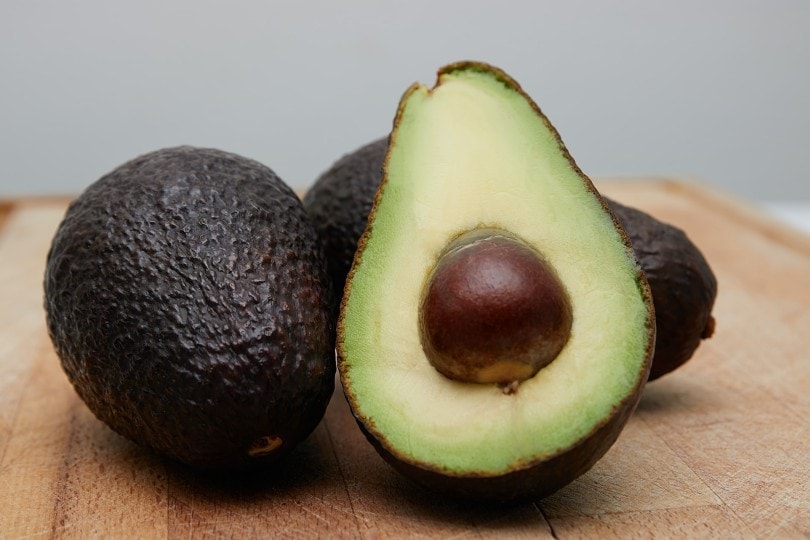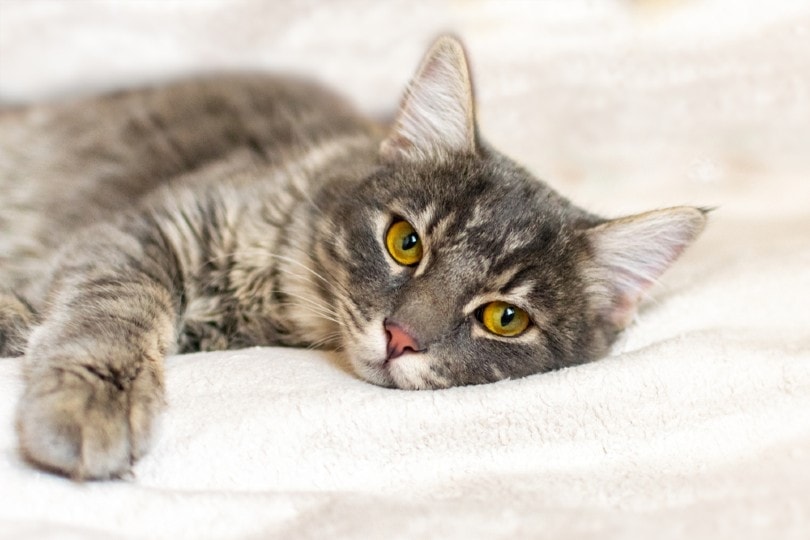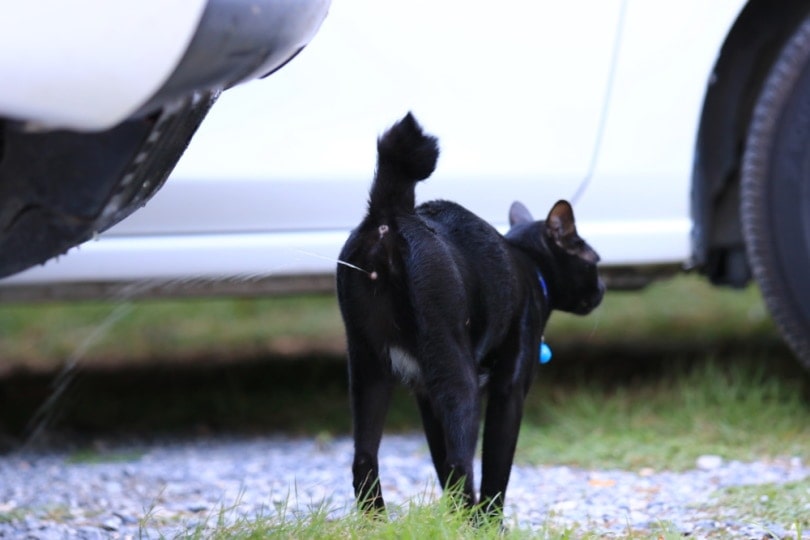Can Cats Eat Avocado? Vet-Approved Facts & Info

Updated on

Spread it on toast, chips, or bread, and you’ve got a mouthwatering and nutritious meal. Don’t know what fruit we’re talking about? Avocados are overloaded with healthy fats that are great for our health, but can we feed this creamy green ingredient to our cats?
To put it simply, no. Cats should not eat avocados. Does this mean they’ll get sick if they snatch a little taste? Also, no. But they definitely shouldn’t be given it on purpose or in large portions.
About Avocados
Avocados are large, green fruits that grow on trees. They are native to Central America and are now cultivated in many tropical climates around the world. The two most popular places to find these plants being grown are Mexico and California. The inner flesh has a savory flavor and buttery smooth texture, and they are a staple in Mexican cuisine.
Avocados are considered a superfood. They nourish our human bodies with vitamins A, E, and K, as well as minerals like iron and potassium. This low-sugar fruit also has loads of dietary fiber and healthy fats to support brain function.
Although it is safe for us to eat avocados by the spoonful, this doesn’t mean that our cats should snack on them alongside us. Why aren’t avocados safe for cats? Keep reading to find out.

Can Cats Eat Avocados?
The leaves, fruit, bark, and seeds all contain a toxin called persin. If your cats (or even your dog) eat persin, it could create some serious issues.
Persin toxicity may produce the following effect in animals:
- The necrosis (death) of the muscles of the heart
- Severe pain along the digestive tract (known as colic)
- The pit can be a choking hazard for many species
- The high fat content of avocado may lead to other health issues (such as those involving the pancreas)
- In mammals, persin causes a painful inflammation of the mammary glands (known as mastitis)
Though avocado toxicity is still poorly understood in cats, the risk is considered too great to warrant its inclusion in their diet. Therefore, you should not offer your cat avocado.
Are All Fruits Dangerous to Cats?
Avocados aren’t safe for cats, but what about all the other fruits in the world? Most fruits aren’t problematic for cats when given to them in moderation. They aren’t likely to eat a large amount of fruit in general, so the sugar content isn’t a huge concern.
Though a lot of fruits are okay for cats to nibble on, some categories should be avoided. Citrus fruits like lemons, oranges, and grapefruits contain citric acid and could upset your fur baby’s stomach in small amounts. In larger doses, other problems could arise.
Raisins, grapes, and currants are some more fruits that shouldn’t be given to your cats under any circumstance. Coconuts are technically seeds, but we will put them on the list of not recommended fruits.
Try not to give your cats a lot of fruit in general. They have a lot of sugars and carbs and should be used rarely in treating them. Always check your food packaging to ensure there are safe ingredients and wash them before you or your cat consumes them.

Healthy Cat Snacks
Sprucing up your cat’s diet and making it more exciting for them is something that every cat owner thing about at least once in their life. Vegetables are a great treat to give to your pets. That is, of course, if they’re even interested in them.
- Chicken
- Duck
- Beef
- Lamb
- Mutton
- Veal
- Eggs
- Fish
- Shrimp
- Lobster
For cats on a raw diet, these meats should be appropriately sourced, deboned, and safely prepared. Please note cats should not be given raw fish.
For cats that don’t eat raw, these foods should be cooked without any seasoning, deboned, and only offered as occasional treats. Some safe methods of cooking include steaming, boiling, or broiling.
We love to spoil our pets rotten and give them something special from time to time. But how many is it okay to give them? Treat shouldn’t make up more than 10% of your cat’s total calorie intake. Too many treats can upset a cat’s stomach and throw off its nutritional balance. Even worse, it could turn them into fussy eaters to the point that they refuse to eat their regular food.
The key to giving your cats healthy treats is by ensuring that they are only consuming whole ingredients. If you can’t find any healthy commercial snacks, then try making your own at home.
Conclusion
It can be tempting to feed our cats small bites of whatever we have on our plates, but this leads to serious issues down the road and puts your cat at serious risk. Even though it’s sometimes hard to resist their big eyes and adorable toe beans, you’ve got to make better choices for them. There are tons of safe ways to treat your kitty that will show them your unwavering love and appreciation.
Featured Image Credit: endriqstudio, Pixabay











